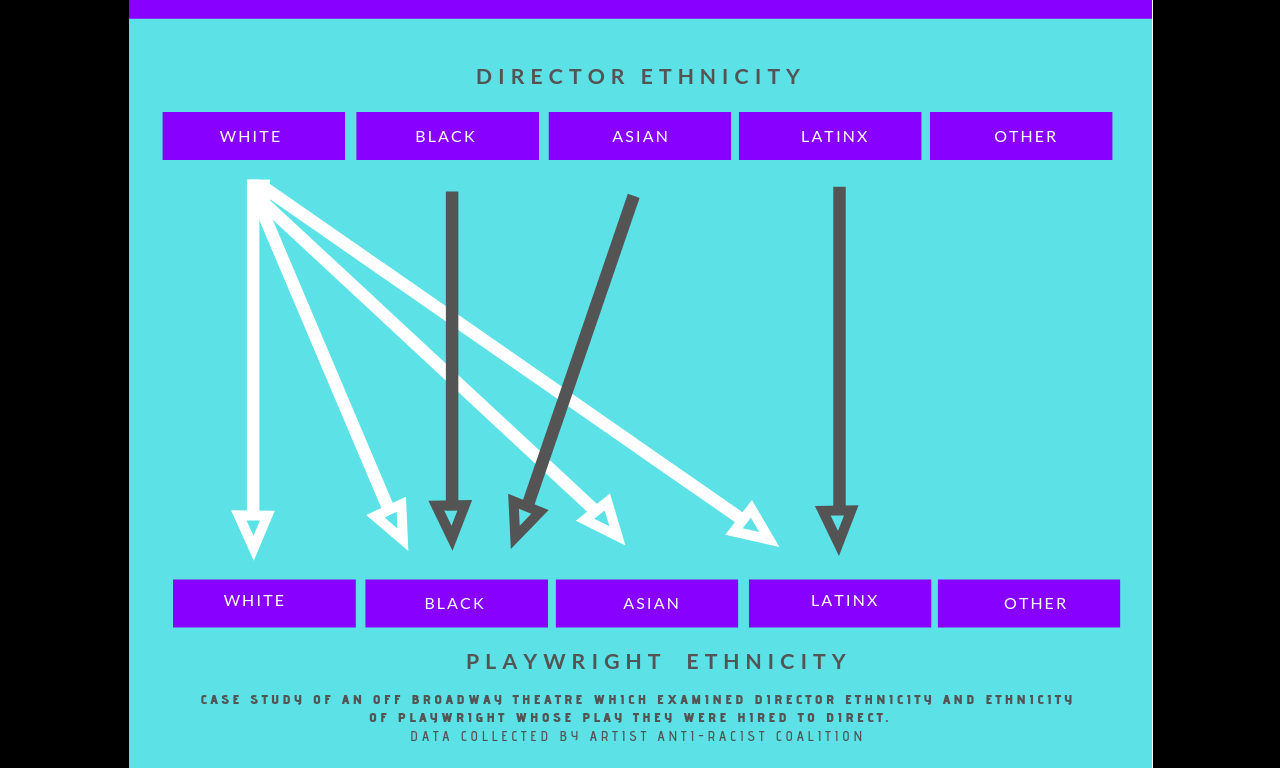Community, Leadership, Experimentation, Diversity, & Education
Pittsburgh Arts, Regional Theatre, New Work, Producing, Copyright, Labor Unions,
New Products, Coping Skills, J-O-Bs...
Theatre industry news, University & School of Drama Announcements, plus occasional course support for
Carnegie Mellon School of Drama Faculty, Staff, Students, and Alumni.
CMU School of Drama
Friday, August 30, 2019
Playwrights of Color, White Directors, and Exposing Racist Policy
HowlRound Theatre Commons: Damn. This thought reverberates through my body, an ultrasonic sound wave carrying much more than disappointment and dismay. As a Black director, actor, and facilitator of anti-racist theatre, I am unable to shake myself free of the viscosity of thoughts I’m having around another company’s decision to uphold a racist policy: hiring a white director to stage a play written by a playwright of color. This has happened time and again: with Lin-Manuel Miranda’s In the Heights, Suzan-Lori Parks’ Father Comes Home From the Wars, James Ijames’s Kill Move Paradise, David Henry Hwang’s Chinglish, Karen Zacarías’ Native Gardens, August Wilson’s Joe Turner’s Come and Gone.
Subscribe to:
Post Comments (Atom)

4 comments:
This article is fascinating and definitely on the heavier and sensitive side in terms of topic. I have a few thoughts, both agreeing and disagreeing with the author's points.
1) "Hiring white directors to direct a play by a person of color (…) is a racist policy that allows racism to metastasize throughout the rest of the process." I agree and disagree. While I believe it is very, very important that a person of color directs a play dealing with and going in-depth into their culture/ethnicity/race (some plays/musicals that come to mind are In the Heights and Fences), I do believe that a production not directly related to the playwright-of-color's race should not be limited to only directors of color. In fact, I think this can do more harm than good. If all directors had to be limited to doing plays written by a person of their same background, we are causing more separation than unity!
2) "Retaliation is also a constant factor for actors of color who choose to speak truth to power, as if their first-amendment right has no place in the theatre." This is alarming. I believe theatre is about collaboration and communication. Directors should be willing to listen to their actors when the actor may have more knowledge on the subject they are dealing with. I agree that this is not a good practice in our industry.
In conclusion, I do agree with some and disagree with some points the author makes, while also acknowledging that their opinion may be more valid than mine (as I do not know the experiences they have gone through as a POC in theatre).
I'm glad that this article is being featured on the blog! I find it an extremely important conversation to have. To me, the author addresses a sort of elephant in the room for theatergoers. Viewers of color cannot be expected to be okay with seeing themselves half represented. Sometimes I think theatre companies put on shows by playwrights of color as performative diversity without putting any effort into responsibly putting on the show. In order to responsibly put on a show by a playwright of color, the diversity has to be there in all other aspects of the production, because white professionals do not have as much motivation to be responsible in putting on said show.
I really love that the author of the article addressed multiple perspectives on this issues. This is the perfect example that addressing multiple perspectives doesn't always mean bringing up the "other side," but amplifying the thoughts of all groups affected. The author acknowledges the thoughts of theatergoers, playwrights, actors, and directors. This is very important!
Overall, I think this article is extremely important as well as well-written.
I'm so glad that I found this article. I feel like this is a very important topic and I'm so glad that someone is writing about it.The first thought I had when I read this was of my theatre director in high school. She was a person of color and loved plays written my people of color. We actually had a conversation about white directors putting on plays written by people of color. My director is a huge fan of August Wilson. She came to school one Monday after seeing August Wilson's "Fences". We had a very long and enlightening conversation about the fact that she did enjoy the play, but the way some themes were focused on and others not did not fully encapsulate the life of an African American in the 1950s.
While I don't exactly agree with the author's point that "Hiring white directors to direct a play by a person of color...is a racist policy that allows racism to metastasize throughout the rest of the process," I do think that play's written by people of color should simply be directed by people of color. I don't believe that a white director directing a play written by a person of color (POC) necessarily has bad intent. Many theaters put on plays written by POCs in the name of diversity and inclusion. Personally, I think that that ideology is positive and good for any community. However, I also believe that it is impossible for a white director to fully understand the lives of POCs in any time period. This misunderstanding, I feel, would greatly impact the message that any play written by a POC would try to convey.
Post a Comment